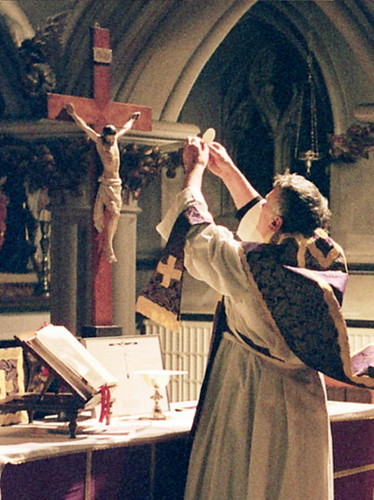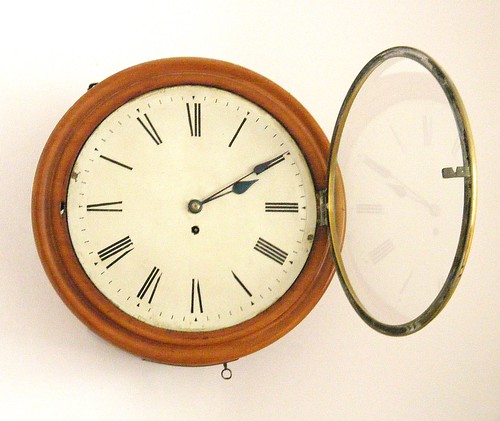Yet again we have to change the clocks. There seem to be more than ever, with clocks on things that never used to have clocks but which do not change themselves automatically.
Some people are suggesting that the UK should stay on Summer Time all the year round. The last time this was tried was around 1968 and it was unpopular in Scotland, where it did not begin to get light in Glasgow in January until about 9.30 in the morning.
Our continental neighbours are on Central European Time which is an hour later than Greenwich Mean Time. That suits their situation perfectly well. But nobody can do anything about the fact that noon is more than an hour later in Glasgow than it is in Berlin and Stockholm, nor that in higher latitudes the days are shorter in the winter.
Clocks are set up so that noon - when the sun is at its highest, is at 12.00. Putting the clocks forward by an hour in the summer is just a way of making people get up an hour earlier. The same result could be achieved by changing work and school starting times from around Easter till the end of October.
Time to stop messing about with the clocks.
måndag 31 oktober 2011
fredag 21 oktober 2011
Energy efficiency in the home
I have just received an energy efficiency appraisal for my house, which is required before I can sell it. It contains advice on steps that could be taking to make it more efficient. These included
One measure not suggested in the report was the use of a dehumidifier. In damp weather it can feel uncomfortably chilly even though the outside temperature is 15 degrees or more. It is then necessary to heat the building to around 25 degrees. By removing the moisture, the environment is comfortable at a lower temperature. A dehumidifier is also an efficient substitute for a tumbler drier, extracting the latent heat from the evaporating moisture and distributing it around the house as warm, dry air.
- Fit low energy bulbs at a cost of £15 to save £23 a year
- Upgrade heating controls at a cost of £350 - £450 to save £38 a year
- Replace boiler with new condensing boiler at a cost of £1,500 - £3,500 to save £46 a year
- Solar water heating £4,000 - £6,000 to save £33 a year
- Replace single glazed windows with double glazed at a cost of £2,500 - £6,500 to save £70 a year
- Fit photovoltaic panels at a cost of £11,000 - £20,000 to save £222 a year
From which it can be concluded that the most effective energy-saving measure I could make would be to put on an extra layer of clothes.
One measure not suggested in the report was the use of a dehumidifier. In damp weather it can feel uncomfortably chilly even though the outside temperature is 15 degrees or more. It is then necessary to heat the building to around 25 degrees. By removing the moisture, the environment is comfortable at a lower temperature. A dehumidifier is also an efficient substitute for a tumbler drier, extracting the latent heat from the evaporating moisture and distributing it around the house as warm, dry air.
söndag 16 oktober 2011
Novus Ordo versus Usus Antiquor

On Saturday, the Association for Latin Liturgy had an event at St Mary Magdalen's in Brighton, including the celebration of a Solemn High Mass according to the Novus Ordo rite, all in Latin, with the priest in the ad orientem position and sung Gregorian Chant throughout, apart from the readings which were in English.
This is as good as the Novus Ordo Mass can get, but it raises questions. Ever since Pope Benedict announced that the Tridentine form had never been abrogated and that no special permission was required for its celebration, an increasing number of parish priests, though still a small minority, have been using this rite, now known as the Extraordinary Form. At St Mary Magdalen's we have it every Friday evening, and once a month on a Sunday afternoon. These liturgies have attracted a regular following, with a good proportion of young people, and now that we are used to it, comparison with the Novus Ordo Mass in Latin is instructive.
From the perspective of someone in the congregation, the first impression is that there is very little difference between the two. The second impression is the amount of time taken for the recitation of the Canon of the Mass in Latin in the newer rite, which would be silent in the older rite, with the singing of the Sanctus taking place at the same time. The effect in the new mass is to prolong it unduly and to no apparent gain. For a lay person not familiar with Latin ie nearly everyone, the Tridentine Mass is actually more accessible. Which makes me wonder if the Novus Ordo has any future in the longer term.
Prenumerera på:
Inlägg (Atom)
Ultimate net zero lunacy?
The ultimate net zero lunacy is probably de-carbonising and trying to electrify the entire railway system. In the first place, the railways...
-
I wrote to my MP on two entirely separate issues recently. The first was to do with the replacement for the Inter City 125 train, which at £...
-
The ultimate net zero lunacy is probably de-carbonising and trying to electrify the entire railway system. In the first place, the railways...
-
The FT has run a couple of pieces on Sweden this week. The first was a report of the outbreak of car burning, the second, today, on the rise...
